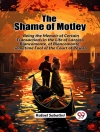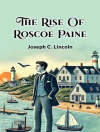In her novel ‘Summer, ‘ Edith Wharton explores the complexities of desire, social convention, and individual freedom against the backdrop of New England’s natural beauty. The narrative follows the introspective protagonist, Charity Royall, as she grapples with her passion and ambition, caught between her innate desires and the constraints of her small-town upbringing. Wharton employs a lyrical yet incisive style, imbued with rich descriptions and psychological depth, which deftly illuminates the struggle of a young woman seeking autonomy in a patriarchal society. The work resonates with themes of social class and moral ambiguity, reflective of Wharton’s own critiques of the American elite during the early 20th century. Edith Wharton, a trailblazer in American literature and the first woman to win the Pulitzer Prize for Fiction, also drew from her privileged social background, allowing her insights into the constraints of societal expectations. Having navigated both high society and the burgeoning modern world, Wharton’s lived experiences informed her writings, imbuing her characters with a sense of realism and emotional depth that continues to resonate with readers today. ‘Summer’ is highly recommended for those seeking to understand the nuanced interplay of personal aspiration and societal limitation. Wharton’s exploration of a woman’s quest for self-identity is not only compelling but also remains strikingly relevant, inviting readers to reflect on the eternal conflicts between desire and duty in their own lives.
A propos de l’auteur
Edith Wharton, nee Edith Newbold Jones, born January 24, 1862, was an American novelist, short story writer, and designer. Wharton came from a wealthy New York family and drew upon her knowledge of upper-crust society to realistically portray the lives and morals of the Gilded Age. Although often remembered for ‘The Age of Innocence’ for which she won a Pulitzer Prize, one of her notable works, ‘Summer’ (1917), reflects her narrative prowess and grasp of emotional subtleties. ‘Summer’ is significant for its exploration of a young woman’s awakening and the complexities of class and gender dynamics in turn-of-the-century society. Wharton’s literary style is characterized by its elegance, incisive wit, and keen observation, particularly of the social strata she inhabited. She was skilled in depicting the intricacies of her character’s inner lives and the constraints imposed upon them by their milieu. Wharton broke down barriers for women in the literary world and left an indelible mark with her extensive canon of work which contributed to the richness of American literature. She continued writing until her death on August 11, 1937, leaving behind a legacy of novels, short stories, and essays that continue to captivate readers and scholars alike.












